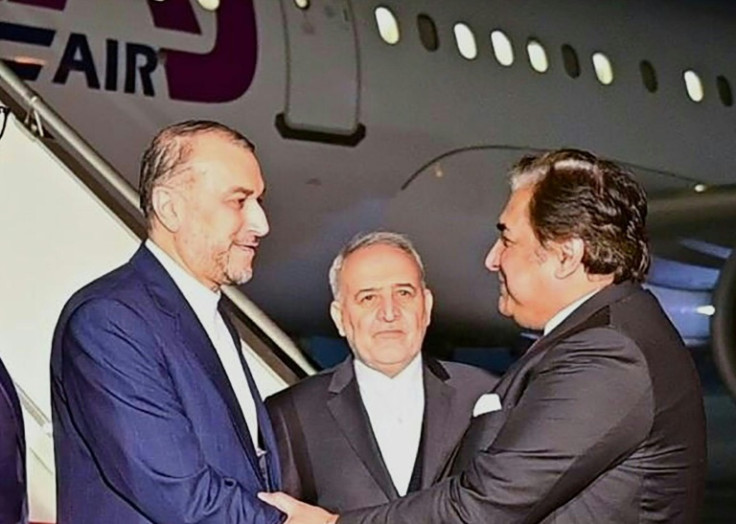
Iran's foreign minister was in Pakistan for talks Monday, as both nations sought to ease tensions after deadly cross-border strikes threatened diplomatic relations.
Pakistan's foreign ministry shared pictures and video of Hossein Amir-Abdollahian arriving in Islamabad late Sunday, saying he would hold talks with his local counterpart Jalil Abbas Jilani and call on caretaker Prime Minister Anwaar-ul-Haq Kakar.
On January 18 Pakistan launched air strikes on what it called "militant targets" in Iran, two days after similar Iranian strikes on its territory.
The tit-for-tat raids in the porous border region of Baluchistan -- split between the two nations -- stoked regional tensions already inflamed by the Israel-Hamas war.
On Saturday, gunmen in southeastern Iran's Sistan-Baluchistan province killed nine people, with Islamabad's ambassador identifying them as Pakistanis.
Sistan-Baluchistan is one of the few mainly Sunni Muslim provinces in Shiite-dominated Iran.
It has seen persistent unrest involving cross-border drug-smuggling gangs and rebels from the Baluch ethnic minority, as well as jihadists.
The initial Iranian strikes, which Pakistan said killed at least two children, drew a sharp rebuke from Islamabad, which recalled its ambassador from Tehran and blocked Iran's envoy from returning to his post.
Tehran also summoned Islamabad's charge d'affaires over Pakistan's strikes, which left at least nine people dead.
The two countries, however, since announced they have decided to de-escalate and resume diplomatic missions with the two ambassadors returning to their posts.




